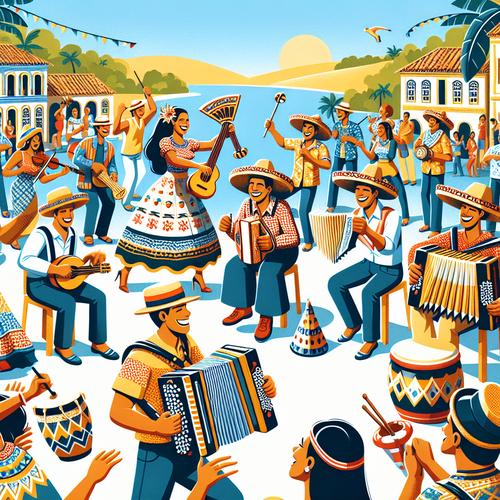
What are the characteristics of the forró music genre?
Forró is one of the most musical genres in Brazil, especially in the of the country. Emerging from a rich mix of cultural influences, forró is known for its unique musicality, infectious dance and a strong sense of community. In this article, we will explore the distinctive features of forró that make it so beloved by its fans.
Rhythm and Instrumentation
The forró is mainly characterized by its fast-paced and dancing rhythm. The instrumentation is usually composed of accordion, zabumba and triangle, but other instruments such as flute, saxophone and rabeca can also be incorporated. The accordion, in particular, is a central element in most forró compositions, defining the sound of the genre.
Letters and Themes
Forró lyrics often reflect the daily life and social experiences of people in the, addressing topics such as love, festivities, longing and social issues. It is common for forró songs to contain stories and have a touch of humor and irony.
Styles and Variations
There are several styles within forró, including xote, baião, and drag-foot. Each style has its own rhythmic and melodic nuances, but all retain the joyous and spirit that is characteristic of the genre.
Cultural and Social
Forró is not just a musical genre, but also an important cultural element that symbolizes the identity and cultural resistance of the Northeastern people. Forró festivals, such as São João, are significant events that bring together thousands of people in celebrations that last for several weeks.
In summary, forró is a vibrant expression of Brazilian culture, with a rich history and a continuous presence in popular music. Its distinctive characteristics, such as lively rhythm, peculiar instrumentation and deep connection with cultural roots, ensure that forró continues to be a vital part of Brazil's musical landscape.



